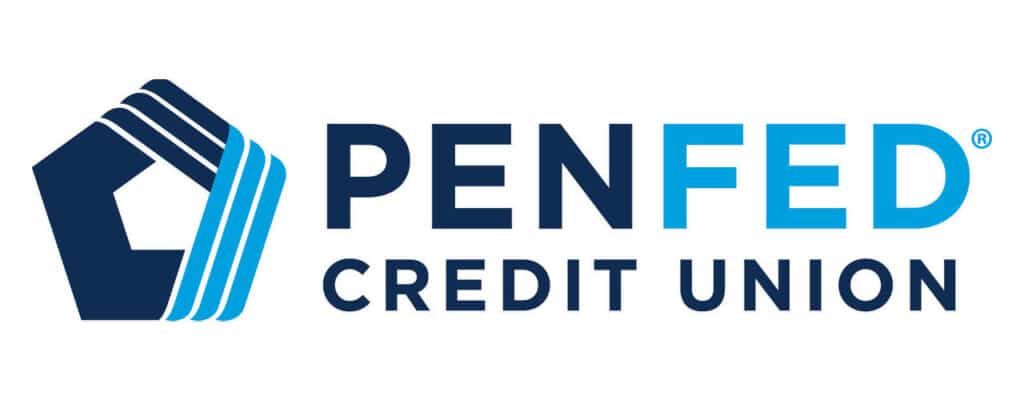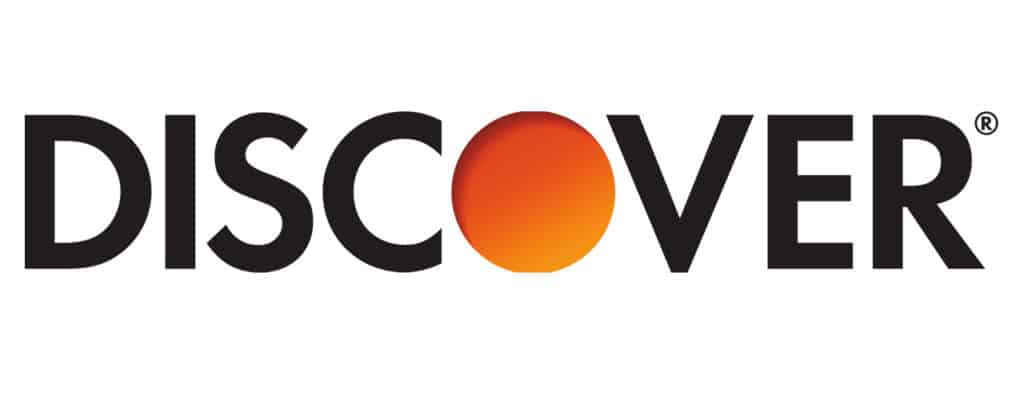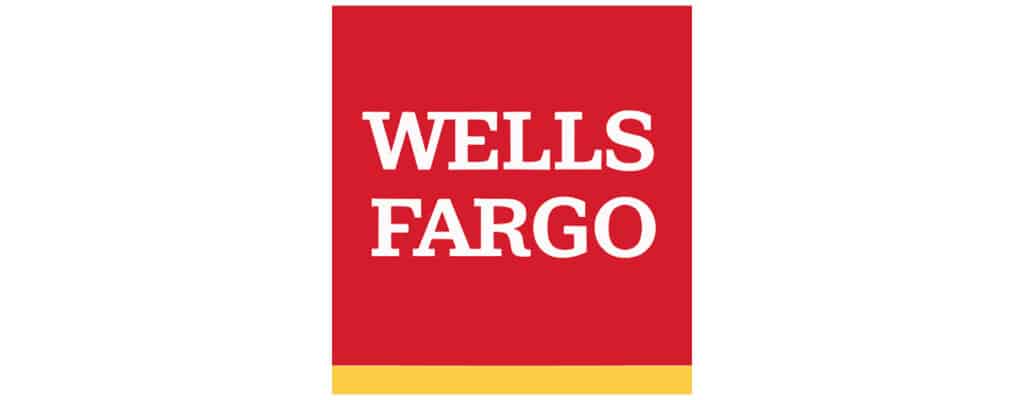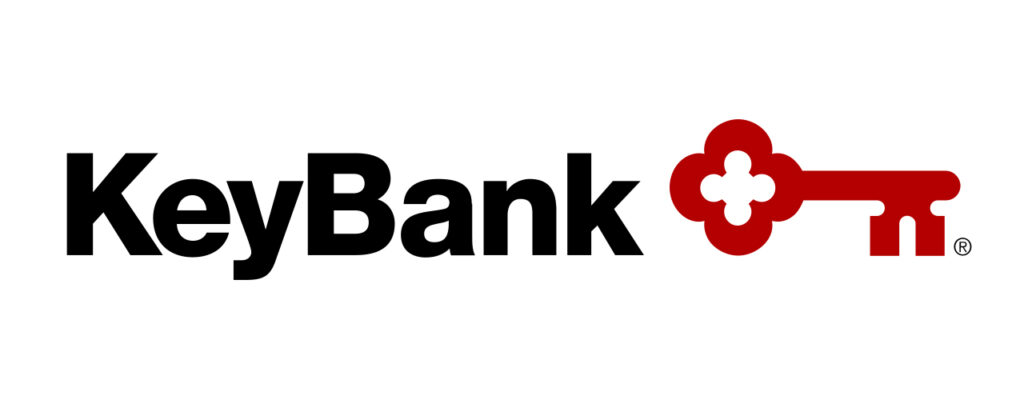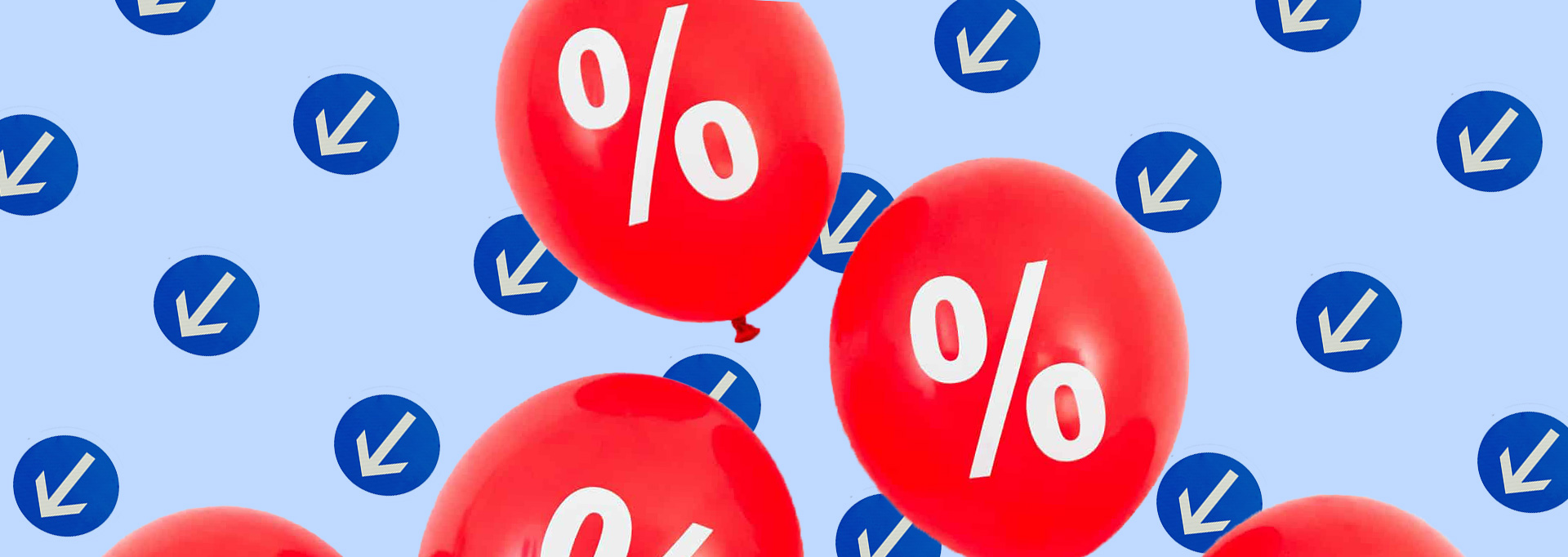Most products on this page are from partners who may compensate us. This may influence which products we write about and where and how they appear on the page. However, opinions expressed here are the author's alone, not those of any bank, credit card issuer, airline or hotel chain.
A personal loan can help you cover big-ticket expenses, such as a wedding or home improvements, or pay down high-interest credit card debt. But what's the difference between getting a loan from a bank versus an online lender? Below, we highlight those differences and the benefits of getting a personal loan through your bank. Plus, we'll walk through how to qualify for one and offer our top picks so you can choose what's right for you.
Best Banks for Personal Loans
- Best for Small Loans: PenFed Credit Union
- Best for Competitive Rates: Discover
- Best for High Borrowing Amounts: Wells Fargo
- Best for Flexible Payment Terms: KeyBank
Loan results will vary based on creditworthiness, loan purpose, loan amount, and other factors.
Best for Small Loans: PenFed
You do have to be a member of this credit union to take out a loan here, but if that isn't a barrier, you'll have access to a wide range of loan amounts, no hidden fees and the option to add a co-borrower.
PenFed Credit Union
- Loan Amounts$600 – $50,000
- Loan Terms12 – 60 months
- APR Range7.99% – 17.99%
- Minimum
Credit Score700 or aboveA credit score is used to indicate the creditworthiness of an applicant, but it is only one of several factors considered for approval. These credit scores alone are not guarantees for approval and should only be used as guidelines.
PenFed offers no fees and small personal loans as low as $600.
Overview
While you will need to become a PenFed member if you decide to get a personal loan there, anyone can apply for membership and the process is quick and simple. Many lenders have relatively high minimum loan amounts, but PenFed offers loans as small as $600, with no origination fees and competitive APRs. If you’d like to view personal loan rates with PenFed, you can do so without impacting your credit score.
Pros
- Pre-qualification is available
- No origination fee, hidden fees or prepayment penalties
- Borrow as little as $600
- Allows co-borrower
- Funding as early as 1-2 business days after approval
Cons
- Must be a member to receive the loan
- No option for direct payment to creditors for debt consolidation
Best for Competitive Rates: Discover
Discover offers loans to those without perfect credit, and its interest rates stack up well against many competitors, even some online lenders, though you'll probably need better credit for the bank's lower rates.
Discover Personal Loans
- Loan Amounts$2,500 - $40,000
- Loan Terms36 - 84 months
- APR Range7.99% - 24.99%
- Minimum
Credit Score660 or aboveA credit score is used to indicate the creditworthiness of an applicant, but it is only one of several factors considered for approval. These credit scores alone are not guarantees for approval and should only be used as guidelines.
Discover offers personal loans up to $40,000 and no origination fees or prepayment penalties.
Overview
Best known for its credit cards, Discover also offers a range of banking and lending products, including personal loans. Its maximum loan amount is just $40,000, which is relatively low compared to certain competitors. A notable perk of Discover personal loans is that borrowers benefit from no origination fees or prepayment penalties, and an APR range that’s comparable to what other lenders offer.
Discover also provides a credit score range of 660 to 850 on its personal loan page, suggesting its willingness to work with prospective borrowers with fair credit. Many lenders require good or excellent credit, so this accessibility sets Discover apart. Just be aware that if your credit isn’t great, your loan’s interest rate will likely be higher.
Pros
- Competitive APRs
- May be available to fair-credit borrowers
- No origination fees
Cons
- Low maximum loan amount
- No co-borrowers permitted
Best for High Borrowing Amounts: Wells Fargo
If you're already banking with Wells Fargo, it's worth looking at the institution's loan options as its borrowing limit is high and the bank also offers a prequalification process.
Wells Fargo Personal Loans
- Loan Amounts$3,000 to $100,000
- Loan Terms12 - 84 months
- APR Range7.49% - 23.24%
- Minimum
Credit ScoreNot disclosedA credit score is used to indicate the creditworthiness of an applicant, but it is only one of several factors considered for approval. These credit scores alone are not guarantees for approval and should only be used as guidelines.
With a Wells Fargo personal loan, you can borrow up to $100,000 and access a competitive APR—as well as no origination fees.
Overview
Offering a range of personal loan repayment terms, loan amounts up to $100,000, and competitive APRs, Wells Fargo could be a smart choice for borrowers seeking flexibility. Existing qualified Wells Fargo customers may also benefit from relationship discounts, which can bring your rate even lower. Like other personal loans, Wells Fargo’s loans can be used for several purposes, including debt consolidation and home improvements. Borrowers won’t pay any origination fees or prepayment penalties, though late fees may apply if you miss your payment date.
Wells Fargo doesn’t disclose its minimum credit score requirements, and it indicates loans may be funded in one to three business days after approval. This is a longer funding time frame than certain competitors. Despite these drawbacks, a personal loan from Wells Fargo does offer solid perks, so it’s worth a look if you’re comparing options.
Pros
- Large loans of up to $100,000 available
- Has prequalification option
- Relationship discounts for qualified existing customers
- Same-day credit decisions possible
Cons
- Credit score requirements not disclosed
- Funding time is longer than some competitors
Best for Flexible Payment Terms: KeyBank
KeyBank offers both unsecured and secured personal loans, decent term lengths and flexible payment options, though the bank is only available in around 15 states.
KeyBank Personal Loans
- Loan Amounts$2,000 - $50,000
- Loan Terms12 - 84 months
- APR RangeVaries based on location
- Minimum
Credit ScoreNot disclosedA credit score is used to indicate the creditworthiness of an applicant, but it is only one of several factors considered for approval. These credit scores alone are not guarantees for approval and should only be used as guidelines.
KeyBank offers both secured and unsecured loans to serve a wider range of customers. While not available in all states, KeyBank does offer flexible payment options and fast funding for those who qualify.
Overview
KeyBank offers unsecured and secured personal loans with terms of up to 84 months and 60 months, respectively, but its lending footprint is limited to just 15 states. Still, borrowers in eligible states may find that this lender provides a competitive offering. Its wide range of loan terms is appealing, and it doesn’t charge any origination fees or prepayment penalties.
However, loan APRs can vary based on your location, loan term, and the amount you borrow. KeyBank doesn’t disclose its minimum credit score requirement on its website, but a 2021 annual report indicated that the majority of borrowers who qualified for consumer term loans had scores of 750 or higher. Some loans were given to fair credit borrowers, but you’ll likely need good credit to qualify for the lowest rates. If you’re interested in a KeyBank personal loan, you’ll need to enter your zip code to access potential rates and terms.
Pros
- No origination fee or prepayment penalty
- Unsecured and secured loans available
- Same-day funding possible
Cons
- Only available in 15 states
- Rates vary based on location and other factors
- May require good to excellent credit
Banks vs. Online Lenders: What's the Difference?
| Attribute | Banks | Online Lenders |
|---|---|---|
|
Credit Score |
May require higher credit score |
Some serve wider range of credit scores |
|
Application Process |
May require you to finish application at a branch |
Typically let borrowers complete application online |
|
Customer Service |
In-person support at branches |
Online support may include email, chat or phone service (no in-person help) |
|
Funding Time |
May take longer to disburse funds |
May provide funds in as little as one day |
|
Relationship |
Existing customers might get better loan terms |
No existing relationship usually needed |
The process is largely the same whether you're getting a personal loan through a bank or an online lender. You’ll need to provide financial and basic personal information to apply for the loan. Then the lender will do a credit check, which requires a hard pull of your credit history.
But there are some differences between getting a loan through a bank versus an online lender:
- Bank personal loans may not offer prequalification. Online lenders typically offer prequalification options. In other words, you can receive a quote with the loan amounts, rates and terms you will most likely be approved for without needing to run a credit check. On the other hand, banks might not offer the option to prequalify for a personal loan.
- Existing bank customers may benefit from perks. Bank personal loans usually require a higher minimum credit score. In some cases, you'll need to be a current customer to be eligible to apply for one in the first place. However, having an existing relationship with a bank could boost your odds of getting approved or snagging a lower interest rate and better loan terms, even if your credit score is less than ideal.
- You may need to finish a bank loan application in person. Online lenders may offer a more streamlined application you can complete virtually with fast electronic deposits. On the other hand, banks may give you the option to start the application online but require you to drop off a physical version at one of its branches.
- You can talk to a human at the bank. If you prefer an in-person customer experience, a major perk of getting a personal loan through a bank is giving them a call or walking into a brick-and-mortar location and talking to a bank rep. They can explain the process and answer your questions thoroughly.
 Related Article
Related Article
How to Prequalify for a Personal Loan, and Why It Can Be a Good Idea
Qualifying for a Bank Personal Loan
Personal loan requirements vary by lender, but considerations like credit score and income are approval mainstays across all institutions.
To qualify for a personal loan, you’ll need to meet these general qualifications:
- Steady income and employment verification
- Low debt-to-income ratio (40% or under)
- Good to excellent credit (it’s possible to get a loan with a lower score, but you'll face higher rates.)
Improving Your Chances of Bank Approval
While what you need to qualify varies by bank, here's what can boost the chances of getting approved:
- Having an existing relationship with the bank. Some banks only give loans to existing customers, and some may consider your entire customer relationship. If you have a strong history with the bank, you might increase your chances of approval for a loan, snag the most favorable rates and loan terms and speed up approval and funding times.
- Getting your approval documents ready. Besides providing your basic financial and personal information, you'll need to provide proof of documentation. Have these employment verifications and proof of identity documents handy:
- Pay stubs
- W-2s and 1099s
- Bank statements
- Tax returns
- Employer contact information
- Proof of identity (i.e., driver's license, military ID, passport or another government-issued ID)
Getting a Personal Loan from a Bank
Let's go through the steps to take to apply for a personal loan through a bank.
Preparing for the loan process How to Get a Bank Personal Loan
Follow these steps to get a personal loan from a bank
-
1
Determine Your Borrowing Amount
Think about how you’ll use the money. You’ll need enough to cover expenses, but remember: the more you borrow, the more you need to pay back—with interest.
-
2
Check Your Credit
Check your credit. Before applying for a personal loan, check your credit to learn your approval odds. You can order a free credit report through AnnualCreditReport.com. If you see something incorrect or incomplete, you can file a dispute. Note you'll need to do this directly with each credit bureau.
-
3
Boost Your Credit, If Needed
Banks typically require a stronger credit score than online lenders. A higher score means lower interest rates. Pay off any active loans and credit card bills on time to improve your credit score and up your chances of landing one.
-
4
Contact Your Bank
A beautiful perk of getting a bank personal loan is the option to interact face-to-face with a human. Use this to your advantage. Give your local bank branch a ring or step foot inside a physical location to inquire about a loan. Ask how you can qualify for a low-interest loan and avoid a high-interest one, and then take action as needed.
-
5
Submit a Loan Application
If the bank doesn't offer prequalification, you'll need to go straight to the official loan application. Depending on the bank, you might need to drop off your application at the bank or start the process online before signing and submitting forms at a physical location.
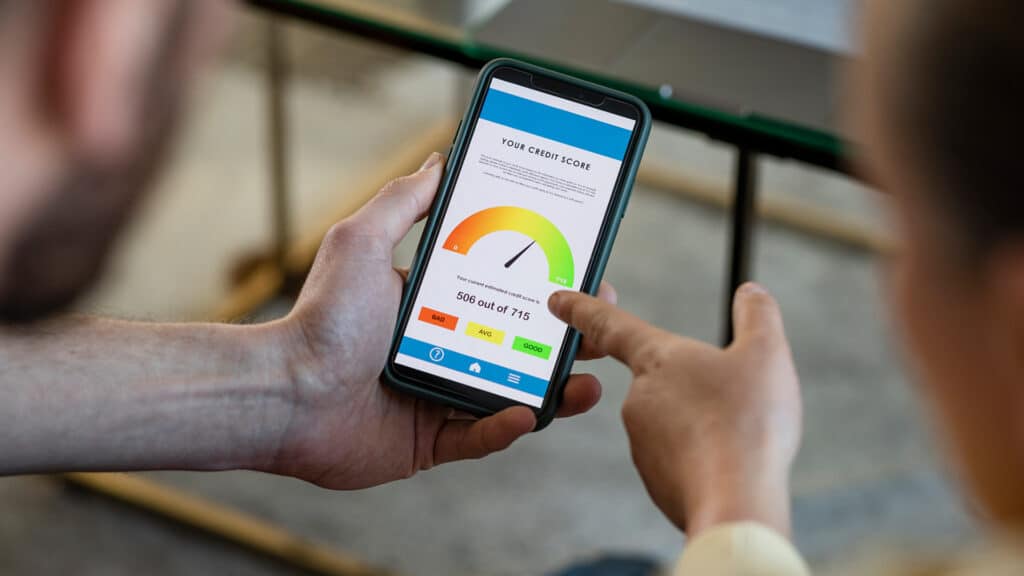
How to Improve Your Credit Score Fast for Free
Alternatives to Big Banks for Personal Loans
If you're not keen on getting a personal loan through a bank, here are some other options on where you can apply for a personal loan.
Online Lenders
As mentioned before, online lenders use an online application process to encourage speedier applications and funding times. And while not all banks offer prequalification, most online lenders do, and you can get prequalified in a matter of minutes.
There are several online lending platforms, so you'll have no shortage of choices to pick from. Some online lenders are peer-to-peer platforms, meaning individual investors pool their money to offer you a loan. Others are more like go-betweens with third-party lenders. It's often a good idea to prequalify with multiple lenders so you can compare their terms and rates.

The Best Personal Loans of July 2024
Credit Union
Credit unions can be a great place to get a personal loan if you have less-than-stellar credit because the credit requirements tend to be lower.
That said, you’ll likely need to be a member of the credit union to source a loan. You’ll need to find a credit union you’re eligible to join before starting the loan process.
Friends and Family
In some scenarios, people can sometimes leverage their social circles for a personal loan. You might be able to agree on a loan with low or no interest and a more liberal repayment schedule if it's with someone in your personal life.
If you choose this option, proceed carefully. Make sure you lay out all loan terms, including repayment dates, interest rates and the amount borrowed, so lending money between friends doesn't hurt your relationship.
FAQs
-
Not all banks offer personal loans. Some banks only offer loans to borrowers who are existing customers, while other major banks, such as Chase or Bank of America, do not have personal loan products at all. It’s not a bad idea to check with your current bank first to see if they have personal loans, and whether there are incentives for current customers, before looking online for lenders.
-
Some banks only offer loans to existing customers. Others allow non-customers to get prequalified, but they’ll need to sign with an account to move forward with the loan.
-
There are several perks to getting a personal loan from a bank. For one, you might be able to get better term lengths and a low-interest loan if you have a good credit score and demonstrate creditworthiness. If you prefer to speak to someone about borrowing money, you might appreciate using a bank over an online lender.
-
Sometimes, but not always. The biggest factor in the rate you'll receive is usually your credit score. Some online lenders do offer lower rates than some banks, but if you have an established relationship with a bank, along with a great credit score, you might get a lower rate at a bank than with an online lender.
-
Typically, you can't get a personal loan from a bank with bad credit. Some banks, like Discover, do serve borrowers with fair credit, but banks usually look for good or excellent credit in their applicants.
Some online lenders serve borrowers with bad credit, but it's important to research these lenders carefully. Some may charge extremely high interest or fees that could make the loan unaffordable in the long run.





